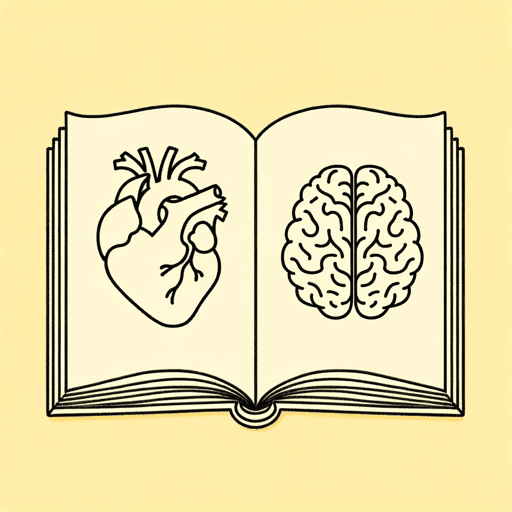63 pages • 2 hours read
Julie SmithWhy Has Nobody Told Me This Before?
Nonfiction | Book | Adult | Published in 2022A modern alternative to SparkNotes and CliffsNotes, SuperSummary offers high-quality Study Guides with detailed chapter summaries and analysis of major themes, characters, and more.
Important Quotes
“The more work we do on building self-awareness and resilience when all is well, the better able we are to face life’s challenges when they come our way.”
(Introduction, Page 5)
This quote introduces Smith’s advocacy for proactive mental health care. The phrase “when all is well” is particularly striking, as it goes against the conventional notion of seeking help or self-improvement only when things are dire. This flips the script on mental health, advocating for ongoing work rather than crisis-driven intervention. Additionally, the quote employs the literary device of parallelism in the structure “The more work we do... the better able we are,” effectively emphasizing the proportional relationship between proactive mental wellness and the ability to cope with future adversity.
“Something that I have come to realize over the years of working as a psychologist is how much people struggle with low mood and never tell a soul. Their friends and family would never know. They mask it, push it away and focus on meeting expectations. Sometimes people arrive at therapy after years of doing that.”
(Part 1, Chapter 1, Page 9)
The quote highlights the psychological ramifications of societal expectations, underscored by Smith’s professional experience as a psychologist. It employs an insightful narrative technique, blending anecdotal evidence (“over the years of working as a psychologist”) with a sweeping general observation about human behavior (“people struggle with low mood and never tell a soul”). This lends the statement both credibility and a sense of urgent universality.
“Thoughts are not facts. They are a mix of opinions, judgements, stories, memories, theories, interpretations, and predictions about the future. They are ideas offered up by your brain about ways we could make sense of the world. But the brain has limited information to go on.”
(Part 1, Chapter 3, Page 36)
This quote underscores the subjective and complex nature of human cognition, urging readers to critically examine their own thoughts rather than taking them as truth. By categorizing thoughts as a blend of opinions, judgments, and predictions, among other things, Smith encourages a metacognitive approach to understanding one’s mental processes.

